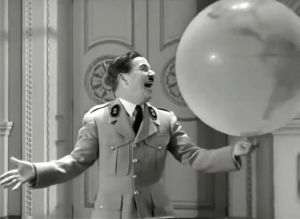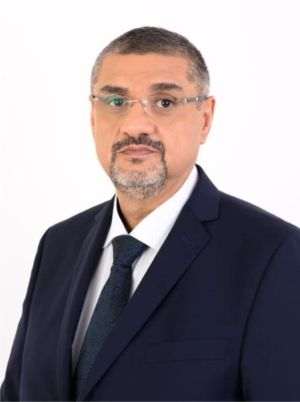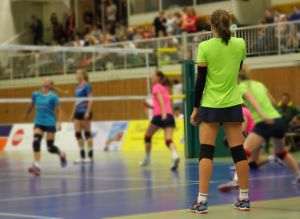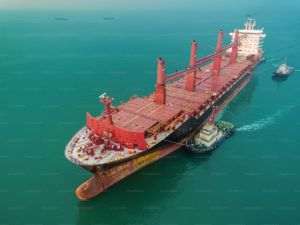Financial fair play is a concept that comes from the world of soccer. The notion is simple, don't spend more than you earn in a month, or in a year, regardless of what shareholder, mogul or investor enters the business.
Mass-media, especially the domestic one, would need such a regulation like air. Even at the last moment, it would be beneficial, an obstacle to its "suicide". Of course, for the short term, it is tempting for the newspaper/website/radio-TV station to be acquired by a "mogul" with deep pockets full of money, whether it's clean, dirty or in-between. Wages are going up, you are no longer concerned with collecting money, you can sell the advertising at huge discounts, just to hurt your competitors. When the deep pockets empty, it is hard to find a balance, you've already ruined the market, advertising earnings are low, employees have ever higher expectations, everything collapses into insolvency and bankruptcy. That's how part of the press died!
There are small media enclaves where balance is kept in check, businesses only expand as much as they can afford, but their struggle is huge when competition is unfair and it is temporarily, but to a huge degree fueled by money coming from another source than the natural one.
The problems of the domestic press are extremely diverse. TV networks are suffering from lack of credibility, as what is black on one station is white on another and rainbow colored on the third. Printed newspapers have difficulty in handling the assault of the internet and the distribution problems. Serious websites find it hard to position themselves and are hard to find because of the huge supply where garbage is one click away from serious documents. But these are matters that can theoretically be fixed from the inside, and a disappearance caused by these factors can be considered as a "natural" one.
A strict regulation in that regard, of the financial fair-play, is absolutely necessary at this time for mass-media activities, meaning that political subordination could be avoided, even if it didn't disappear completely.
• Mogulimpics
About a decade ago, when president Traian Băsescu was being suspended, shifts were taking place and accusations were being made against the most powerful media trusts. It was a war in which absolutely everybody stood to lose something, there was talk about interests that were not in touch with the ideas of press and normal business practices and it was later proved that things haven't worked the way they should have at all.
Dan Voiculescu, Dinu Patriciu and Sorin Ovidiu Vântu have represented the main targets of president Băsescu at the end of his first term and throughout his second. The attitude against Adrian Sârbu had swings, and Dan Diaconescu was regarded as an "exotic element" the entire time. On top of that, there were the effects of the economic crisis, and the results were devastating. Many newspapers have disappeared, and important investors from the press area either sold their businesses, or they made their exits or were "helped" to make their exits.
Dinu Patriciu sold the Adevărul trust to Cristian Burci in 2012, after focusing exclusively on the divorce from his first wife and his health problems. At the time the transaction was made, Dinu Patriciu was having huge financial difficulties both at Adevărul Holding SRL, as well as at Mic.ro Retail SRL, which had gone bankrupt. The list of creditors included over 1,200 companies and individuals and about 5,000 employees that had not been paid.
In August 2014 the businessman died.
Dan Voiculescu, the founder of Intact Media Group, was definitively sentenced on August 8, 2014 (eleven days before Dinu Patriciu's death), to 10 years in prison in the case of the privatization of Food Research Institute - (Institutul de Cercetări Alimentare - ICA). The media trust, led by his daughter, continued its operations, with some small hiccups along the way, such as the episode of February 2016, when the Tax Administration (ANAF) ordered TV networks Antena 1, Antena 3, Zu TV, Euforia and Antena Stars to leave their headquarters, following the enforcement of criminal court ruling no. 701/26.09.2013, which remained final through court ruling no. 888/A/08.08.2014, rendered by the Bucharest Court of Appeal. Meanwhile, Dan Voiculescu has been released and it seems he is continuing his business in the mass-media segment, despite his statements to the contrary.
Sorin Ovidiu Vîntu, who is currently in a real whirlwind of legal actions against him, has gradually lost any ties to Realitatea (a trust which included TV networks, radio stations, newspapers, magazines, websites). In 2011, his children sold all the shares in Realitatea TV to Elan Schwartzenberg. Later there was information that shares in the TV network had returned to Vîntu's daughter, and then other shareholders in the TV network appeared (Cozmin Guşă and Maricel Păcurariu). In the last seven years Sorin Ovidiu Vântu has seen several definitive rulings against him, in various cases, including prison time, on a wide range of charges, from blackmail and money laundering to aiding and abetting offenders. Vîntu is no longer relevant as a player in the press at the current time.
Adrian Sârbu had submitted his resignation as president of CME in August 2013, and on January 1st 2014, his contract with Central European Media Enterprises, the parent company of Pro TV, has officially reached its end. Even if he is still the owner of Mediafax Group - which concerns press agency Mediafax and several publications, most of them online - Adrian Sârbu has lost a significant portion of his media influence he had 10 years ago. His legal issues Sârbu began in February 2015, when the Bucharest Court of Appeal decided to place him under preventive arrest on charges of abetment of tax evasion, money laundering and abetting embezzlement. In May 2015 he was released, and in April 2016 he was indicted by the prosecutors of the General Prosecutors' Office in the tax evasion case of Mediafax Group.
• The digital revolution
The great digital revolution has subjected the written press to many challenges. Slowly, the internet has gained on printed newspapers. The number of publications still on newsstands has shrunk, the numbers of news websites has mushroomed, and according to specialized studies, people have become increasingly distrustful of the press.
In Romania, there was a time where print newspapers closed down one after another. Ziua, Gândul, Cotidianul (which has since reappeared), Cronica Română, Independent, Gardianul, Săptămâna financiară, Curentul, Sport Total, Pro Sport, Puterea all went away.
A large number of publications have rethought their product strategy and have abandoned their print editions, moving exclusively to the internet, have cut down on their print and distribution expenses, have reduced the number of reporters/editors, but their incomes have also decreased drastically, as web advertising is a lot cheaper. The paywall model of making content available exclusively to subscriber has seen several versions, was timidly attempted in Romania as well, but isn't proving too successful so far.
























































